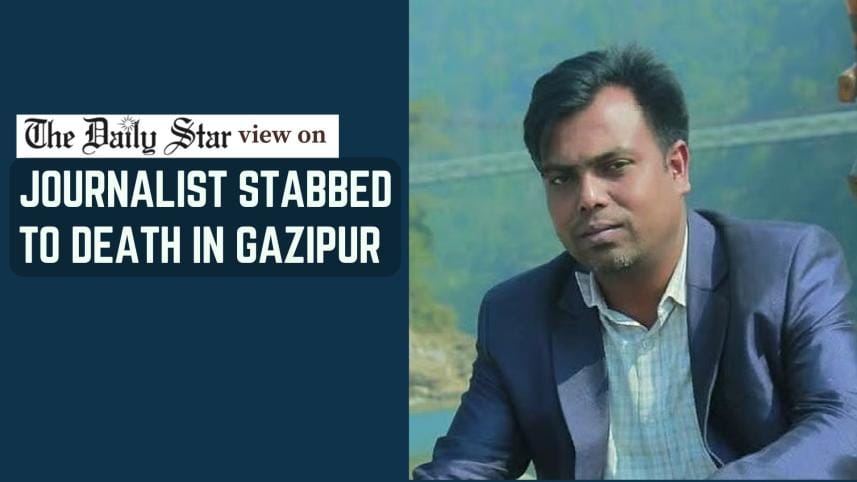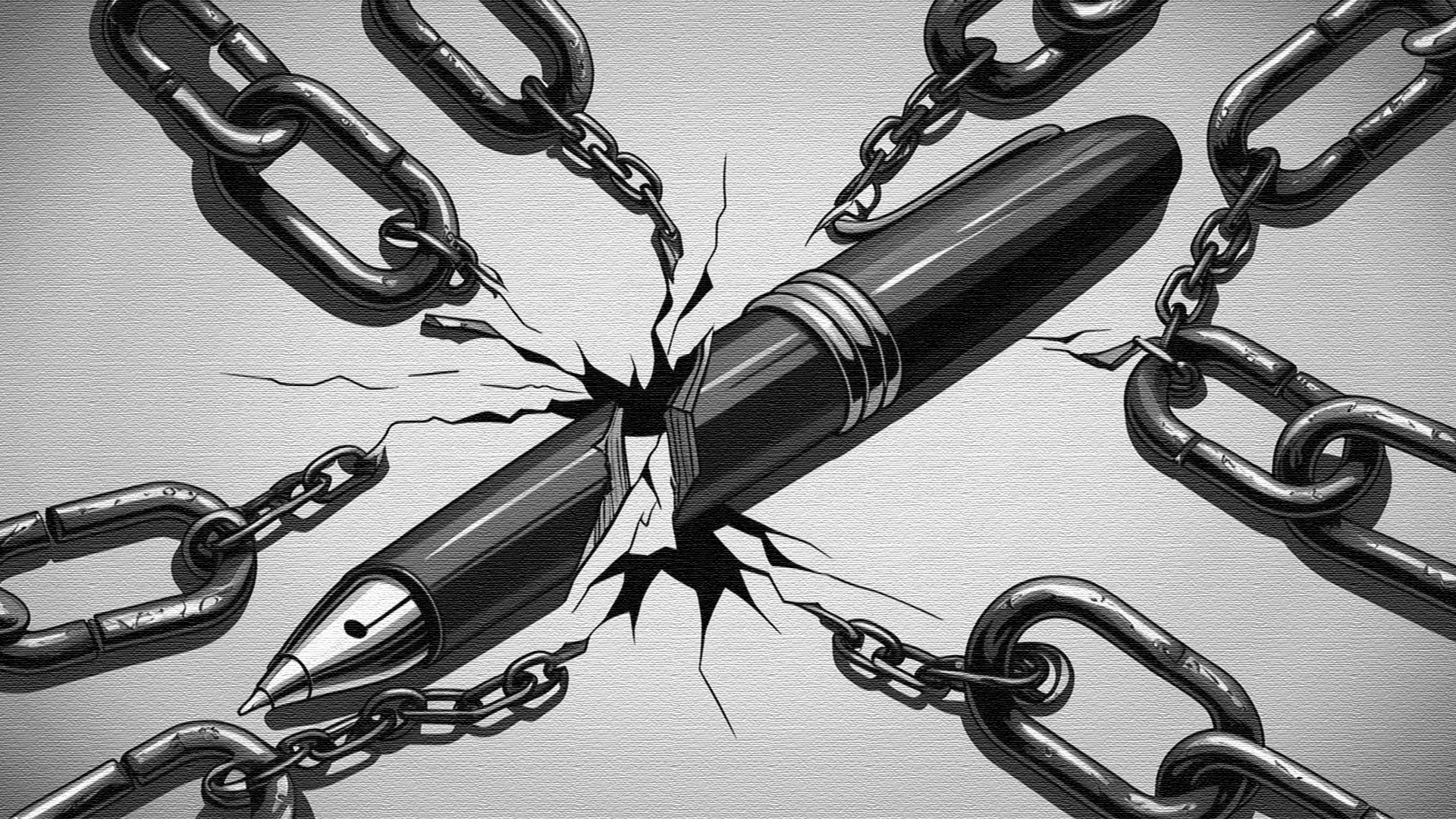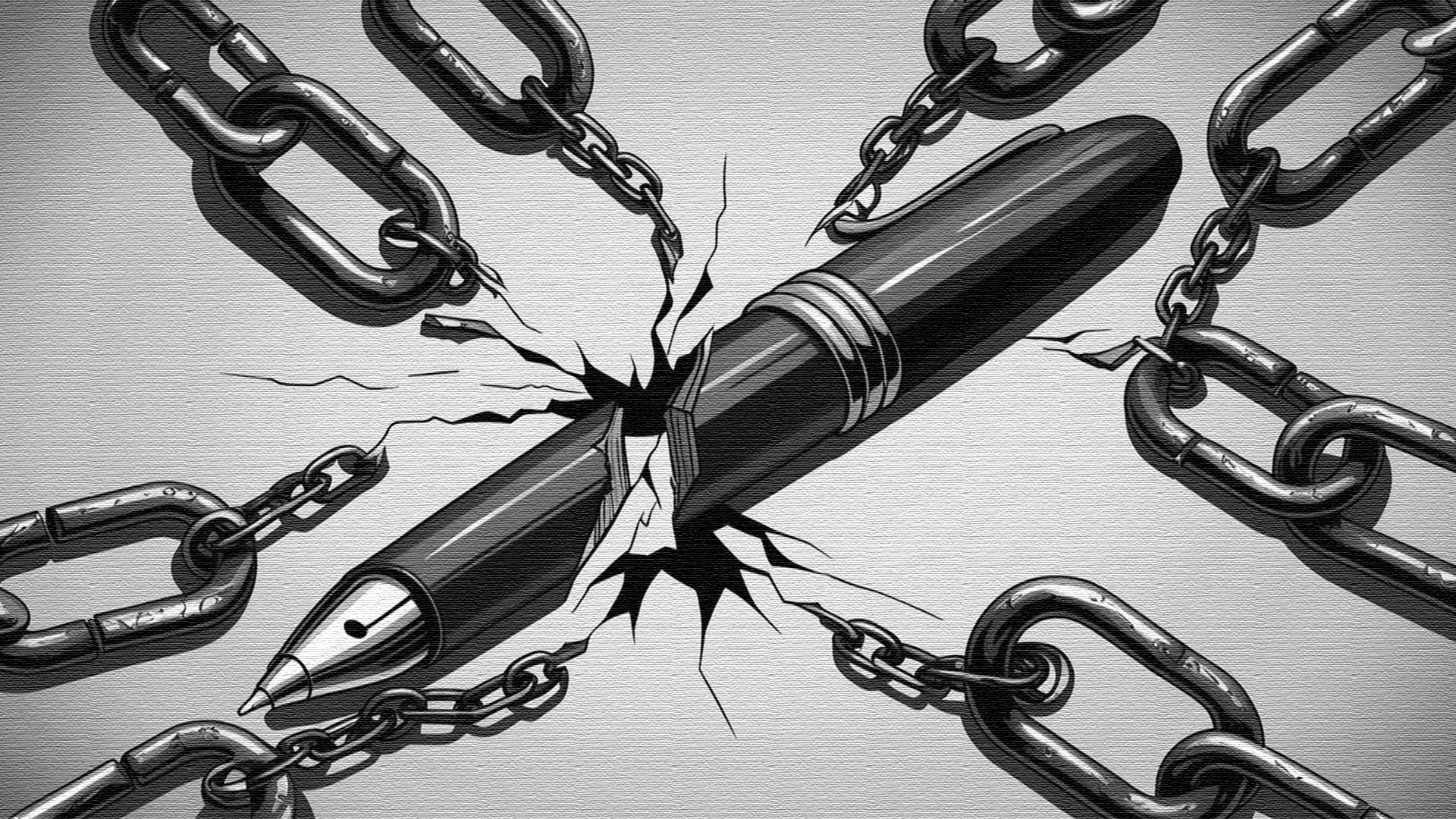Protect journalists, uphold press freedom

We condemn the killing of journalist Asaduzzaman Tuhin by miscreants in Gazipur on August 7, and echo the concern expressed by the Newspaper Owners' Association of Bangladesh (NOAB) regarding the safety of journalists and media freedom in the country. Tuhin, a staff reporter of the Mymensingh-based daily Pratidiner Kagoj, was fatally attacked at a busy intersection of the city in full public view. This occurred just a day after another reporter, Anwar Hossain of Bangladesher Alo, was brutally attacked in Sahapara, Gazipur.
In both cases, the journalists were on duty. Tuhin was recording footage of several armed men chasing two individuals, while Anwar was investigating allegations of extortion from auto-rickshaw drivers. These incidents reflect the increasingly unsafe working conditions for journalists, particularly those operating outside Dhaka. Journalists are being targeted not only by criminal groups and extortionists but also by political activists and, at times, even law enforcement. Just last month, the Committee to Protect Journalists (Asia) in a tweet urged the government to investigate the assault on a DBC News reporter allegedly by security forces, during a protest in Khagrachhari on July 17.
Attacks on journalists are not limited to physical harm. According to a recent Transparency International Bangladesh (TIB) report, from August 2024 to July 2025, as many as 496 journalists were harassed, 266 were implicated in murder cases related to the July uprising, and three were killed while on duty. During the same period, eight newspaper editors and 11 news chiefs from private TV channels were dismissed, and at least 150 journalists were terminated. Besides, the TIB report and speakers at a recent seminar highlighted the issue of "mob" to coerce, threaten and put pressure on media houses to change the narrative of news reports if they don't favour certain quarters. NOAB, too, cited the alarming case of a mob attempting to evict the owner of Janakantha, which involved a politically connected individual.
Following the fall of Sheikh Hasina's autocratic regime, expectations were high for a freer, less politically influenced media. While there is no longer overt government intervention, hostility towards the media persists among other quarters. The interim government has yet to take visible steps to ensure press freedom. Controversial issues such as press accreditation procedures, the stalled implementation of the Information Commission, and lack of progress in reforming the Right to Information Act raise concerns about its commitment to fostering a free media environment. Most worrying is the government's failure to improve law and order. Why is the police still inactive while crimes occur in broad daylight? With elections just six months away, the government must act decisively to ensure that journalists can work without fear. We urge the authorities to swiftly bring Tuhin's killers and Anwar's attackers to justice and demand stronger police vigilance. No one can feel safe in a society where criminals roam free, brandishing weapons and attacking people in public.



 For all latest news, follow The Daily Star's Google News channel.
For all latest news, follow The Daily Star's Google News channel. 


Comments